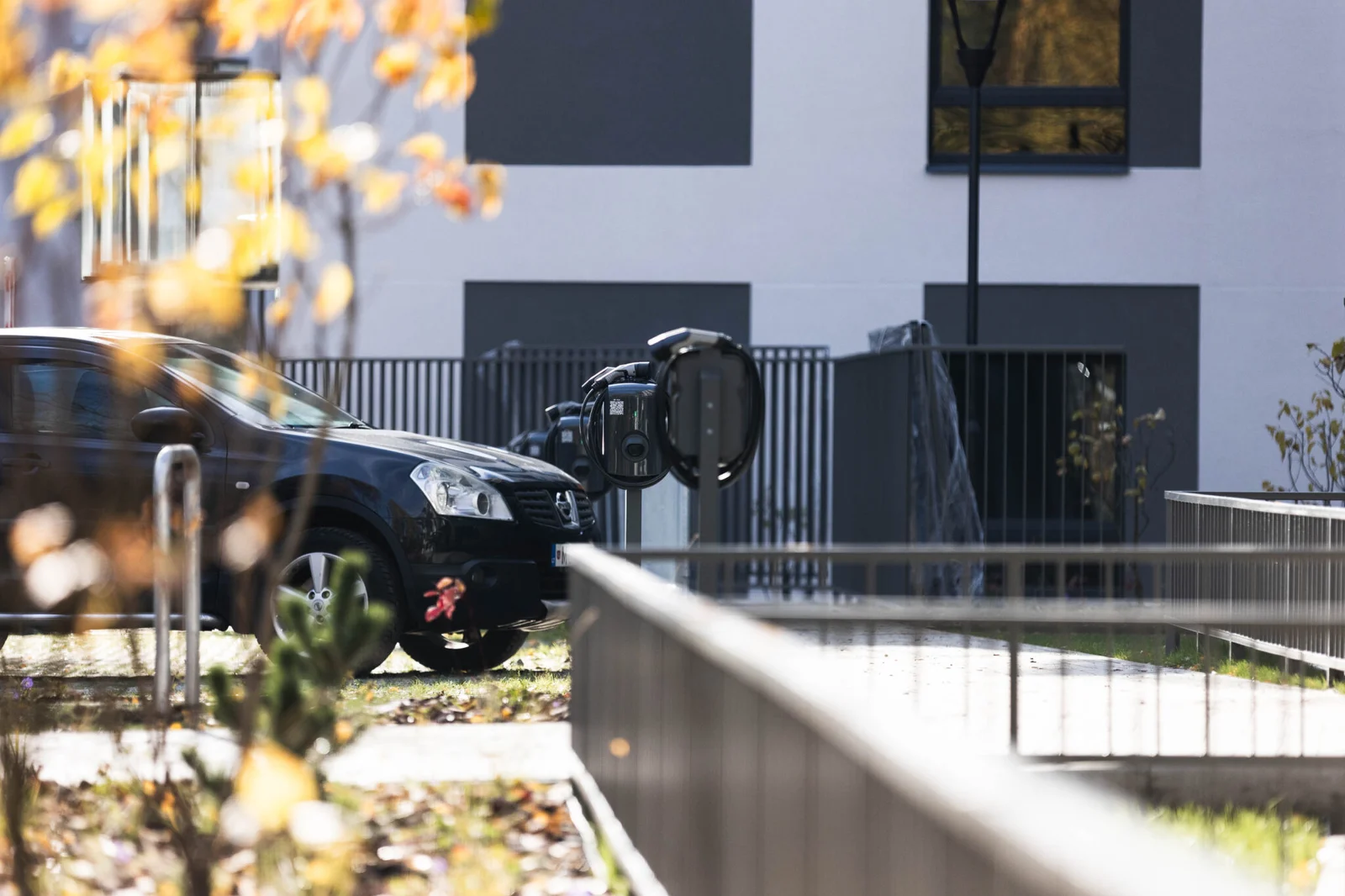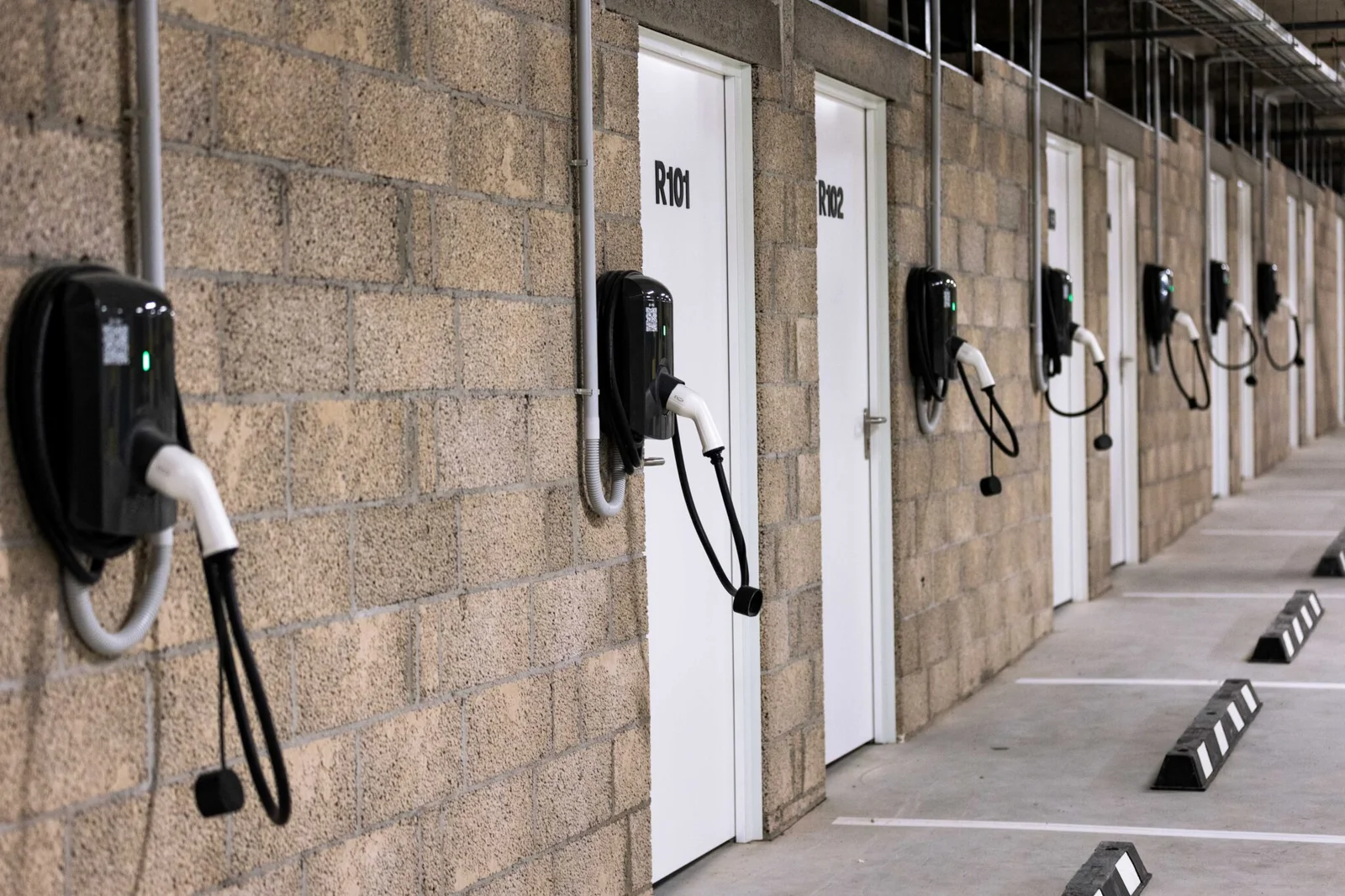Changes in the transport sector typically affect many more areas of life: for example, increased transport costs usually mean more expensive everyday goods, while the increasing number of electric cars on the road has led to an update of the Building Regulation.
The new regulation requires 20% of new buildings to be equipped with EVs when they are constructed or renovated.
Parking spaces with the possibility of charging electric cars are to be provided in 20% of new buildings.
While the installation of the stations alone is not a major concern, builders face other challenges related to this new requirement.

“With this requirement, one of the main conundrums for builders has been the allocation of power on the site – how much to allocate to charging and how much to other uses.
And, of course, buying the extra capacity from the grid operator.
This means increased costs for the production or reconstruction of the building,” Jolanta Dobradziejienė, Development Project Manager at EIKA, commented on the changes.
However, as statistically around 70-80% of drivers charge their electric cars at home at night, companies that install charging stations and related solutions offer smart solutions to avoid the extra cost of a more powerful input.
Here, Įkrautas, in cooperation with EIKA, has already applied a power distribution solution in the newly built Metų Laikai apartment project in Vilnius.
“Since most of the loading takes place at night, when the apartment building itself requires the least electricity, it is possible to balance the building’s common area power system so that it is distributed according to demand.
This means that during peaks in electricity consumption, for example, after working hours until the evening, there is a chance that electric cars will charge more slowly, while at night, when electricity consumption is low, the additional electricity capacity of the building’s common needs, such as elevators, parking lot lighting and other common areas, can be directed to charging the cars,” said Paulius Gūžys, the head of the company Įkrautas, on the proposed solution, noting that the main goal of the system is to make the most efficient use of the available power input to the building.
P. Gūžys says that the power distribution system is programmed to prioritise the needs of residents.
This means that if at any point the EVs are close to the limit of the allowable electricity for general consumption, the charging capacity will be temporarily reduced.
However, as charging at stations close to the home normally takes several hours, a 10-15 minute increase in charging time will not have a significant impact on the final result.

The aforementioned apartment project has 28 charging stations from the Dutch manufacturer Alfen – 7 on the ground and 21 underground – which will be available to residents who have purchased parking spaces with charging stations.
For ease of use, the charging stations are linked to a mobile app that allows users to view charging history, set a charging schedule or use other smart features.
It’s also a convenient billing solution, as each charge is passed on to the building manager and everyone pays for the electricity used to charge their electric car together with the total building management fees.
Dobradziejienė commented that while such solutions are an additional challenge in design and construction, the ability to charge EVs close to the home can make a significant contribution to the value of the property, “In the past, it was common to think that EVs were for those living in private homes, but the updated building regulation and our projects following the new guidelines can fundamentally change the way people use EVs.”
The EIKA representative also mentioned that this project is a pilot project, and a project with an even more efficient power solution is planned for the near future.
The new project will include power distribution not only for common needs but also for apartment energy use.